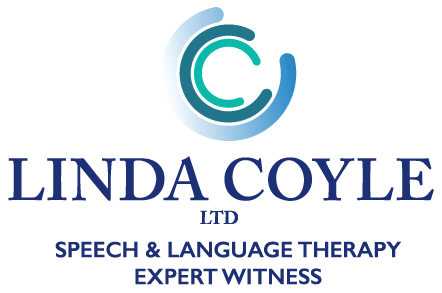Medico-legal services
Expert Speech and Language Therapy Report
SALT Assessment
Comprehensive speech and language assessment
My comprehensive independent assessment involves a three stage process:
1. Review of background reports and documentation
The starting point for my assessment is reviewing relevant documentation relating to the case. Sources of this information include reports, clinical letters and clinical notes from a range of clinical specialists including:
Multi-disciplinary team, Paediatrics, Audiology, Speech and Language Therapy, Psychology, Neuropsychology, Psychiatry, and Occupational Therapy.
For children, an important source of information is educational reports such as from Individual Education Plans and school reports.
The degree of detail that I require depends on the nature of the case and the instructions that I have been given. Reviewing of the speech and language therapy clinical notes can be useful, particularly where the case is quite complex and if there is a lack of recent reports.

2. Interview with the plaintiff or significant others
Getting a picture of the client’s lived experience is an important part of the assessment process. A key part of this is interviewing the plaintiff and/or significant others in their lives. With children, my interview is typically with one or both parents, although depending on the age and ability of the child, the child will also be interviewed. In the interview I actively listen to the client’s story. This involves listening to their lived experience of their current situation in order to get a sense of what is going on for them, how the situation has progressed over time, the impact that it is having on their lives, what their challenges are, and what their priorities are going into the future. Sometimes it can be useful to interview others who are part of the wider circle of support for the client. This could include teaching staff or the treating speech and language therapist.
3. Assessment of the client
The nature of the assessment will vary according to the client, their age, their needs as well as how I have been instructed in relation to the case. A combination of informal and formal methods are used in order to obtain a picture of how the client communicates.
Informal methods include:
Observation: Observing the client in their day to day environment, as well as observing how the client communicates with myself and with others.
Taking a language sample: This involves recording a sample of the client speaking. This can then be evaluated to look at speech or language skills.
Carrying out a structured informal assessment. This could be through using objects, pictures, or the natural environment.
Using apps: There are a range of apps which can be used to assess speech and language skills.
Formal methods
Formal methods involve using standardised tests. These are tests which follow strict methods for administration and allow the person’s performance to be compared to another person of similar age or ability. Standardised tests typically give statistical scores. Even where formal tests are used, they may not always be standardised for that particular population, for example, children with cerebral palsy, and so this needs to be taken into consideration.
Following the assessment, I evaluate my findings and this goes on to inform my expert report.
Expert report
Producing a high quality, expert report is my priority. I am acutely aware of my duty to the court, and the importance of my report being independent from whoever has instructed me.
In preparing my expert report I integrate information from:
- medical and other background reports
- interview with the client or their parents/carers
- my direct assessment of the client.
When writing, I am conscious of the balance between providing a report which is both a professional speech and language therapy report, whilst also being accessible to those who are not speech and language therapists, or who do not have a healthcare background.
My reports are generally completed within 5 weeks of the appointment, but can be completed more urgently by prior arrangement.

Testimonials
What My Clients say
Expert Witness Services
For more information about my services please get in touch.
